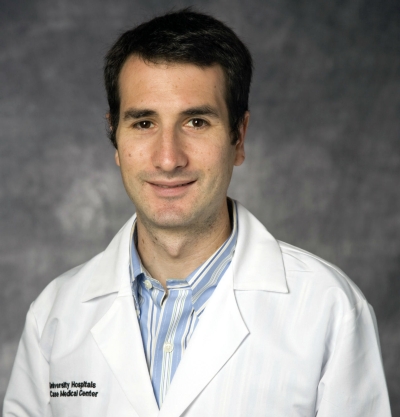Cleveland Team Develops New Method to Drive Robust Expansion and Activation of Natural Killer Cells
December 14, 2021
Approach promises to increase access to NK therapeutics
Innovations in Cancer | Fall 2021
Scientists at the Wesley Center for Immunotherapy at University Hospitals Seidman Cancer Center and the Case Comprehensive Cancer Center at Case Western Reserve University have developed a novel universal donor approach to expanding and activating large numbers of natural killer (NK) cells for use in cancer therapeutics. This new method, which is being licensed commercially through Case Western Reserve University through the Australian company Chimeric Therapeutics, promises to make NK technology available to more cancer patients. Chimeric Therapeutics is led by a highly experienced team that helped develop 25 previous cell therapy products, including four of the five FDA-approved CAR T products.
“NK cell adoptive therapy is a promising cancer therapeutic approach, but there are significant challenges limiting its feasibility and clinical efficacy,” says David Wald, MD, PhD, Associate Director for Basic Research at the Wesley Center for Immunotherapy at UH Seidman Cancer Center. “One difficulty is the paucity of robust clinical grade manufacturing platforms to support the large scale expansion of highly active NK cells.”
 David Wald, MD, PhD
David Wald, MD, PhDIn an approach detailed in the journal Scientific Reports, Dr. Wald and his colleagues address these challenges, specifically by introducing a line of NK feeder cells to help drive NK cell expansion and activity.
“We created an NK cell feeder cell line termed ‘NKF’ through overexpressing membrane-bound IL-21 that is capable of inducing robust and sustained proliferation of more than 10,000-fold expansion at five weeks of highly cytotoxic NK cells,” he says. “We have a cell line that we engineered that we co-culture with the NK cells, which allows the NK cells to grow up to large numbers and become very active, so we can make lots of clinical NK product and freeze it down and infuse it in multiple patients. In many cell therapies, you have to match the donor and the recipients, so it can be very tedious and very expensive and not very practical to scale up. With our cells, they have the advantage that you don’t have to match donor and recipient. You can have what is called a universal donor – that’s a big advantage.”
Dr. Wald and colleagues at UH Seidman Cancer Center recently completed a Phase I clinical trial testing these NK cells in patients with either colorectal cancer or blood cancer. Although results are yet to be published, the NK cells expanded through the new method appear to be more effective against blood cancers than against solid tumors. Several follow-up trials are planned. Dr. Wald and UH Seidman oncologist J. Eva Selfridge, MD, PhD, have submitted for FDA approval to conduct a Phase Ib study to evaluate safety and persistence of the novel NK cells in combination with IL-2 and vactosertib in patients with locally advanced/metastatic colorectal cancer.
“Now that we have demonstrated the safety of our expanded NK cell product, we are testing combinations – not just the NK cells alone, but combining with other factors to try to further improve their activity, persistence and trafficking to the tumor, which will hopefully result in better activity in solid tumors,” Dr. Wald says.
In addition, Dr. Wald and his colleagues are collaborating with Chimeric Therapeutics to develop and test three novel CAR NK products over the next year using the NKF expansion and activation platform.
“The clinical experience we’ve had with this NK cell platform gives us tremendous confidence in the development path for optimized NK and CAR NK products,” he says. “We look forward to working in close collaboration with Chimeric to bring forward the next generation of NK and CAR NK products to the clinic.”
At the same time, Dr. Wald and his colleagues are also working to expand NK cells in other ways, namely through differentiating them from induced pluripotent stem cells (IPSC) and modifying them to express a chimeric antigen receptor (CAR) directed against B cell malignancies. This approach, if successful, would take NK cell therapeutics to a whole new level, he says.
”You basically could have an infinite supply of the same NK product,” he says. “For scale up and commercial potential, it’s good to have a consistent clinical product. There are other advantages of the IPSC NK cells also. You can modify them with not just one CAR but many genes – they are more amenable to modification than the blood-derived NK cells.”
To reach Dr. Wald, please email David.Wald@UHhospitals.org.
Contributing Expert:
David Wald, MD, PhD
Associate Director for Basic Research at the Wesley Center for Immunotherapy
UH Seidman Cancer Center
Associate Professor of Pathology
Case Western Reserve University School of Medicine


